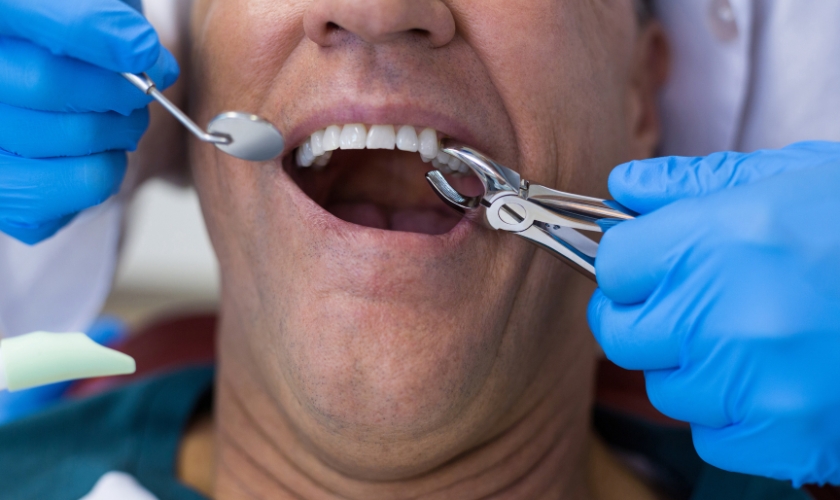Book An Appointment

Welcome to the ultimate guide on how many days you should rest after tooth extraction! If you’re about to undergo this standard dental procedure, it’s essential to understand what to expect during your recovery period. We know that waiting for your mouth to heal can be frustrating, but taking proper care of yourself after extraction is crucial for a smooth and speedy recovery. In this blog post, we’ll answer all your burning questions about tooth extraction recovery time and provide some helpful tips along the way. Please come to the ultimate guide on how many days you should rest after tooth extraction! If you’re about to under
How Many Days Should Rest After Tooth Extraction?
So, how many days should you rest after tooth extraction? Well, the duration of your rest period can vary depending on various factors such as the complexity of the extraction and your healing ability. In general, dentists often recommend taking it easy for at least 24 to 48 hours following the procedure.
During these initial hours, it’s crucial to allow a blood clot to form in the socket where your tooth once was. The clot promotes healing and protects the area. To ensure its stability, avoid any activities that could disrupt or dislodge it – this means no vigorous rinsing, spitting forcefully, or using straws.
While some discomfort is expected during this time, be mindful not to confuse pain with normal post-operative soreness. If you experience prolonged or severe pain beyond what’s typically associated with healing, don’t hesitate to reach out to your dentist for advice.
In most cases, after those first couple of days have passed without complications like excessive bleeding or severe swelling setting in, you can gradually start resuming some light activities. However, always listen to your body and take things slowly; everyone heals at their own pace.
Remember that every individual is unique when it comes to recovery times after tooth extraction. Some individuals may require more extended periods of rest due to specific circumstances, such as impacted teeth or underlying health conditions, while others may recover more quickly. Trust your dentist’s guidance and maintain open communication throughout your recovery process, allowing them to monitor your progress and address any concerns that may arise.
What Should I Do During Recovery?
During the recovery period after a tooth extraction, it is essential to take proper care of your mouth to ensure smooth healing and minimize any potential complications. Here are some guidelines on what you should do during this crucial time.
1. Follow post-operative instructions: Your dentist will provide you with specific instructions for your recovery. It is essential to follow these guidelines closely, including taking prescribed medications and adhering to any dietary restrictions.
2. Control bleeding: Expect some bleeding immediately after the procedure. Bite down gently on the gauze pad placed by your dentist to help control bleeding and promote blood clot formation.
3. Manage pain and swelling: Swelling and discomfort are common after a tooth extraction. Apply an ice pack or cold compress on the affected area intermittently for 10-15 minutes during the first 24 hours to reduce swelling.
4. Maintain oral hygiene: Although brushing your teeth may be challenging initially, it remains essential for maintaining oral health during recovery. Be gentle around the extraction site, using a soft-bristled brush or rinsing with warm saltwater instead.
5. Eat soft foods: Stick to a diet of smooth, cool foods like mashed potatoes, yogurt, soups, smoothies, and pudding for the first few days following extraction.
Remember that every individual’s recovery process varies slightly depending on factors such as age and overall health condition. By following the general recommendations provided by your dentist and getting ample rest during this time, you can aid in efficient healing while minimizing discomfort or setbacks along the way.
When Can I Return to Normal Activities?
After a tooth extraction, it’s natural to wonder when you can get back to your routine. The recovery time can vary from person to person, but generally, you should expect to take some time off from your regular activities.
In the first 24 hours following the procedure, it’s essential to rest and allow your body to heal. Avoid any strenuous activities that could increase bleeding or dislodge the blood clot forming in the socket. This means no heavy lifting, intense exercise, or excessive talking.
Over the next few days, gradually introduce light activities into your routine as tolerated. However, avoid anything that puts pressure on the extraction site or causes discomfort. Remember that everyone heals at their own pace, so listen to your body and don’t push yourself too hard.
It’s essential not to rush things and allow yourself sufficient time for proper healing before resuming more vigorous activities, such as contact sports or intense workouts. Your dentist will provide guidance based on your progress in recovery.
Remember that patience is key during this process. It may take anywhere from a few days up to a week or two before you feel comfortable returning fully to your normal activities without any restrictions.
Listen closely! Your body will let you know when it’s ready for more demanding tasks. Just be patient with yourself and prioritize self-care during this period of recovery.
Are There Any Potential Complications From Tooth Extraction?
Potential complications can arise after a tooth extraction, although they are relatively rare. It’s essential to be aware of these possibilities so that you can take the necessary precautions and seek medical attention if needed.
Dry socket, also known as alveolar osteitis, can occur if the blood clot that forms in the socket where the tooth was removed becomes dislodged or dissolves before the wound has healed. This can lead to severe pain and delayed healing. To prevent dry socket, it’s essential to avoid smoking, drinking through a straw, or spitting forcefully in the first few days after surgery.
Another potential complication is infection. Although your dentist will prescribe antibiotics if necessary, it’s still important to keep an eye out for signs of infection, such as increased pain, swelling, warmth around the site, or discharge from the wound. If you suspect an infection, contact your dentist immediately for further evaluation and treatment.
Nerve damage is another possible complication of tooth extraction. The nerves that supply sensation to your lips and tongue are located near the lower wisdom teeth; therefore, there is a risk of temporary or permanent numbness in these areas following their removal.
Excessive bleeding may occur immediately after surgery, but should subside within a few hours with proper post-operative care instructions provided by your dentist.
While potential complications exist with any surgical procedure, including tooth extraction, it’s crucial to follow all post-operative instructions given by your dentist and promptly report any concerns or symptoms you experience during recovery.
What Else Can I Do To Speed Up Recovery?
Speeding up the recovery process after a tooth extraction is a goal that many people strive for. While it’s essential to give your body time to heal naturally, there are a few things you can do to help facilitate the process.
First and foremost, follow your dentist’s post-operative instructions closely. This may include taking any prescribed medications as directed and avoiding certain foods or activities that could hinder healing. Additionally, maintaining good oral hygiene by gently brushing your teeth (avoiding the extraction site) and rinsing with saltwater can help keep the area clean and reduce the risk of infection.
Applying ice packs to your face in 15-minute intervals during the first 24 hours can help reduce swelling and discomfort. Be sure to wrap ice in a cloth or towel before applying it directly to the skin.
Eating soft foods for the first few days after extraction is also recommended. Opt for items like mashed potatoes, yogurt, smoothies, and soups that don’t require much chewing.
Avoid smoking or using tobacco products as they can delay healing and increase the risk of complications. Similarly, avoid drinking through straws as this can create suction in your mouth, which may dislodge blood clots necessary for proper healing.
Getting plenty of rest is crucial during this time. Avoid strenuous activities for at least a few days following surgery, as excessive physical exertion can impede healing.
The journey of tooth extraction and recovery is unique for each individual. While there are general guidelines for rest and recovery after a tooth extraction, it’s essential to listen to your body and follow the advice of your dentist or oral surgeon.
There is no set number of days that you should take rest after a tooth extraction, as it can vary depending on factors such as the complexity of the procedure, your overall health, and how well you follow post-operative instructions. It is recommended to take it easy for at least 24-48 hours following the procedure, avoiding strenuous activities that may increase bleeding or discomfort.
During this time, focus on maintaining good oral hygiene by gently rinsing with warm saltwater several times a day and avoiding smoking or using straws, which can dislodge the blood clot. Stick to soft foods that require minimal chewing to prevent any strain on the extraction site.
As you progress through your recovery, gradually introduce more normal activities into your routine but continue to avoid anything that may disrupt healing. Be mindful of any potential complications such as excessive bleeding, severe pain, swelling beyond what is expected, or signs of infection like fever or pus discharge from the surgical site. If you experience any concerning symptoms during your recovery period, contact your dentist immediately.
Remember that everyone heals at their own pace. While some individuals may feel back to normal within a few days, others may need more extended rest periods before resuming regular activities. Trust in yourself and trust in the guidance provided by dental professionals during this process.
FAQ
1. How long should I rest after a tooth extraction?
The duration of rest needed after a tooth extraction varies from person to person and depends on the complexity of the procedure. In general, it is recommended to take it easy for at least 24 to 48 hours following the extraction.
2. What should I do during recovery?
During recovery, it is essential to follow your dentist’s instructions carefully. This may include taking prescribed pain medication, applying ice packs to reduce swelling, eating soft foods, avoiding strenuous activities, and maintaining good oral hygiene.
3. When can I return to normal activities?
The timeline for returning to normal activities will also depend on individual circumstances. Most people can resume their regular routines within a few days after a simple extraction, while more complex cases may require longer periods of rest.
4. Are there any potential complications from tooth extraction?
Although rare, potential complications from tooth extractions can include infection, excessive bleeding, dry socket (a painful condition where the blood clot that usually forms in the socket dissolves or dislodges), and damage to surrounding teeth or nerves. It is crucial to report any unusual symptoms or concerns promptly to your dentist.
5. What else can I do to speed up recovery?
To aid in faster healing and minimize discomfort during recovery:
– Follow all post-operative care instructions provided by your dentist.
– Avoid smoking and drinking through straws as these actions could potentially dislodge blood clots.
– Maintain good oral hygiene by gently brushing your teeth but avoiding the surgical site.
– Stick with soft foods that are easy to chew until you’re fully healed.
– Apply cold compresses intermittently during the first 24 hours following surgery.
Remember that everyone’s healing process is unique; if you have any specific concerns or questions about the aftermath of your dental procedure, be sure to consult with your dentist for personalized advice.






